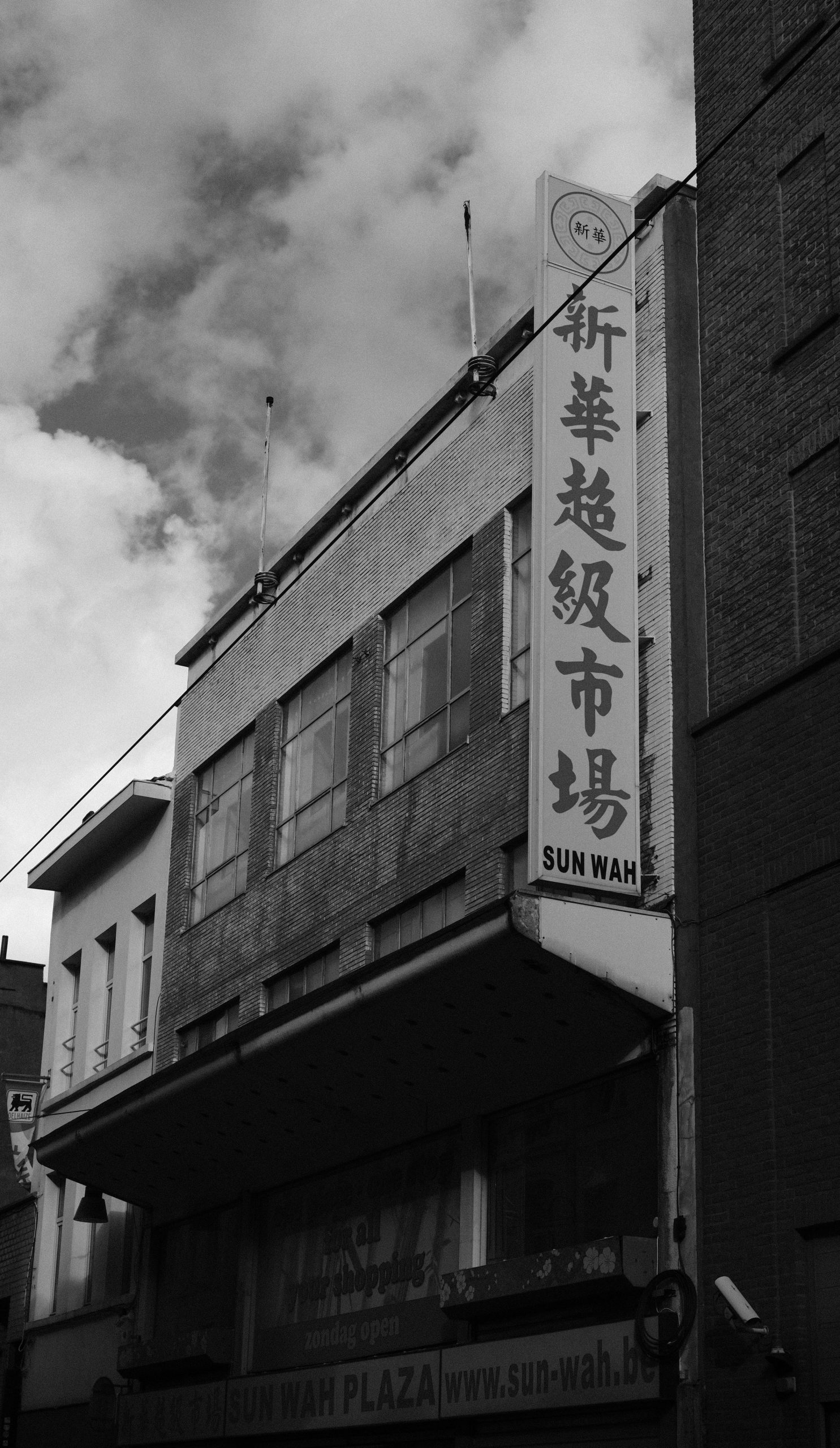Have you ever wondered about the legal protections available to commercial property owners? In this article, we will explore the concept of landlord liability and shed light on the various legal safeguards that landlords can take advantage of. From understanding the responsibility for injuries or accidents that occur on the property to knowing the limits of their liability, commercial property owners will gain valuable insights into protecting their interests. Whether you own a shopping mall, office building, or restaurant, this article will equip you with the knowledge to navigate the complex world of landlord liability. So, read on and discover how these legal protections can help safeguard your investment and provide you with peace of mind.
Understanding Landlord Liability
As a commercial property owner, it is essential to have a thorough understanding of landlord liability. By familiarizing yourself with the responsibilities and potential risks associated with owning commercial property, you can take proactive measures to protect both your investment and your legal interests.

Liability of Commercial Property Owners
Commercial property owners have a legal obligation to maintain their premises in a safe condition. This means ensuring that the property is free from hazards that could potentially cause harm to tenants, employees, or visitors. Failure to fulfill this duty of care can result in liability for any injuries or damages that occur on the property.
Responsibilities of Landlords
Landlords have various responsibilities when it comes to the safety and maintenance of their commercial property. These responsibilities include:
- Regular inspections of the property to identify any potential hazards.
- Timely repairs and maintenance to address any existing hazards.
- Compliance with building codes and regulations to ensure a safe environment.
- Proper screening and selection of tenants to minimize potential risks.
By fulfilling these responsibilities, landlords can significantly reduce their liability risks and create a safer environment for everyone on the property.
Types of Liability Issues for Landlords
Landlords can face a range of liability issues, including premises liability, negligent maintenance and repairs, tenant-related liability issues, product liability, and environmental liabilities. Understanding these various types of liability is crucial in implementing effective risk management strategies and protecting yourself legally.
Protecting Your Commercial Property
To safeguard both your commercial property and your legal interests, certain measures can be taken.
Importance of Legal Protections
Consulting with a commercial real estate lawyer is crucial in understanding the legal protections available to commercial property owners. A knowledgeable attorney can guide you through relevant laws, regulations, and requirements, helping you establish a strong legal foundation for your property.
Hiring a Qualified Property Manager
One effective way to mitigate liability risks is by enlisting the services of a qualified property manager. A professional property manager can ensure that your property is well-maintained, in compliance with building codes, and that tenant-related issues are handled appropriately. Their expertise can be invaluable in safeguarding your investment.
Maintaining Property in Compliance with Building Codes
Compliance with building codes is essential to ensure the safety of your commercial property. Failure to meet these requirements can result in penalties, fines, and potential liability in the event of an accident or injury. Regular inspections and prompt adherence to building code regulations are vital for maintaining a safe environment for tenants and visitors.
Risk Management Strategies
In addition to legal protections and property management, implementing effective risk management strategies can significantly reduce liability risks for commercial property owners.
Insurance Coverage for Landlords
Acquiring appropriate insurance coverage is an essential aspect of risk management for landlords. Commercial property insurance can provide protection against various risks, including property damage, liability claims, and loss of rental income. It is vital to review your insurance policies regularly to ensure they adequately cover potential liabilities.
Minimizing Liability Risks through Contracts
Properly drafted contracts, such as lease agreements, can play a significant role in minimizing liability risks. These contracts should clearly outline the responsibilities of both landlords and tenants, allocate potential risks, and include provisions for indemnification. Seeking legal advice to ensure the contracts are comprehensive and enforceable is crucial in protecting your interests.
Ensuring Proper Tenant Screening
Thorough tenant screening can significantly reduce potential liability risks. Conducting background checks, verifying employment, and checking references can help identify tenants who are more likely to comply with the terms of the lease and maintain a safe environment. Implementing a standardized screening process and adhering to fair housing laws is important to avoid discriminatory practices.
Premises Liability
Premises liability refers to the legal responsibility of property owners to ensure a safe environment for tenants and visitors. Understanding the concept of premises liability is essential for commercial property owners to take appropriate measures in maintaining a hazard-free property.
Understanding Premises Liability
In the context of commercial property ownership, premises liability holds property owners responsible for injuries or damages that occur on their premises due to negligence or failure to maintain a safe environment. This liability extends to both tenants and visitors, emphasizing the importance of ensuring the property is free from hazards.
Duty of Care Owed to Tenants and Visitors
Commercial property owners have a duty of care to tenants and visitors, meaning they are legally obligated to take reasonable steps to prevent injuries or damages on the property. This duty includes routine inspections, maintenance, and prompt resolution of any existing hazards. Failure to fulfill this duty can result in liability for the property owner.
Common Types of Premises Liability Claims
Premises liability claims can arise from various situations, including slip and fall accidents, inadequate security leading to criminal acts, defective conditions on the property, and failure to warn of potential hazards. Being aware of these common types of claims can help property owners identify potential risks and take appropriate preventive measures.

Negligent Maintenance and Repairs
Negligent maintenance and repairs can not only compromise the safety of a commercial property but also expose landlords to significant liability.
Responsibilities of Landlords
Commercial property owners have a responsibility to promptly address maintenance and repair issues to maintain a hazard-free environment. This includes routine inspections, timely repairs, and proactive maintenance to prevent potential hazards from arising.
Importance of Timely Repairs and Maintenance
Timely repairs and maintenance are essential in preventing accidents, injuries, and property damage. Neglecting maintenance issues can exacerbate hazards, increase liability risks, and negatively impact the value of the property. Regular inspections and addressing maintenance concerns promptly demonstrate your commitment to maintaining a safe environment.
Liability for Negligent Maintenance and Repairs
Landlords can be held liable for injuries or damages resulting from negligent maintenance or repairs. Failure to promptly address known issues, inadequate maintenance of essential systems (such as plumbing or electrical), and knowingly renting out a property with hazardous conditions can all lead to legal consequences. Therefore, it is crucial for landlords to prioritize the safety and maintenance of their commercial property.
Property Inspections and Maintenance
Regular property inspections and proactive maintenance are vital practices for commercial property owners.
Regular Inspections of the Property
Regular inspections of the property allow landlords to identify potential hazards, maintenance issues, and areas that require attention. These inspections should be done at reasonable intervals and documented appropriately. By conducting inspections, landlords can address concerns promptly, ultimately reducing liability risks.
Addressing Maintenance Issues
Upon identifying maintenance issues during inspections or receiving tenant complaints, landlords must take prompt action to resolve the problems. Timely repairs, replacements, or upgrades can help prevent accidents, minimize property damages, and protect both tenants and visitors. Maintaining a documented record of completed repairs demonstrates your commitment to property safety.
Documentation of Inspections and Repairs
Maintaining detailed documentation of inspections and repairs is essential for landlords. These records provide a historical record of the property’s condition, actions taken to address hazards and maintenance concerns, and can serve as evidence in the event of a lawsuit. Documentation plays a vital role in protecting yourself legally and demonstrating your commitment to maintaining a safe property.

Tenant-Related Liability Issues
Tenant-related liability issues can arise from various factors, emphasizing the need for proper tenant screening and maintaining a safe environment.
Tenant Safety and Security
Commercial property owners have a responsibility to prioritize tenant safety and security. This includes implementing adequate security measures, maintaining common areas, and promptly addressing any safety concerns raised by tenants. Taking proactive steps to ensure tenant safety can significantly reduce liability risks.
Proper Screening and Selection of Tenants
Thorough tenant screening is paramount in minimizing tenant-related liability risks. Conducting background checks, verifying references, and assessing creditworthiness can help identify tenants who are more likely to comply with lease terms, maintain the property, and avoid potential risks. Implementing a standardized screening process and adhering to fair housing laws is essential.
Liability for Tenant-Related Incidents
Landlords can be held liable for tenant-related incidents if it can be proven that their negligence or failure to maintain a safe environment contributed to the event. Regular inspections, proper maintenance, and addressing tenant concerns promptly are essential in minimizing liability risks. Establishing open lines of communication with tenants can also help address potential issues before they escalate.
Product Liability on Commercial Property
Commercial property owners can face product liability issues if defective products are present on their premises.
Liability for Defective Products
As a commercial property owner, you can be held liable for injuries or damages resulting from defective products found on your premises. This liability arises from the duty to ensure that products on your property are safe for use and free from defects. Regular inspections and prompt removal of any defective products can help mitigate potential risks.
Ensuring Product Safety
Taking reasonable precautions to ensure the safety of products on your property is crucial. This includes inspecting items before placing them on the premises, staying informed about product recalls, and removing any products that pose a risk to tenants or visitors. Being proactive in maintaining a safe environment can help prevent product liability issues.
Product Liability Coverage for Landlords
Acquiring product liability insurance coverage is an effective way for landlords to protect themselves against potential lawsuits stemming from injuries or damages caused by defective products. This insurance provides financial protection in the event of a product liability claim, potentially covering legal fees and damages awarded to injured parties.
Environmental Liabilities
Commercial property owners must be mindful of environmental liabilities and take appropriate measures to prevent environmental harm.
Understanding Environmental Liabilities
Environmental liabilities refer to potential risks associated with environmental contamination or harm caused by a property. These liabilities can arise from inadequate waste disposal, hazardous material handling, or failure to comply with environmental regulations. Being aware of these risks allows property owners to take preventive measures and avoid costly legal consequences.
Proper Waste Disposal and Management
Property owners must ensure proper waste disposal and management practices to prevent environmental harm. This includes adhering to local regulations for disposal of hazardous materials, implementing recycling programs when appropriate, and properly maintaining waste storage areas. Taking these measures mitigates the risk of environmental liabilities.
Protecting Against Environmental Lawsuits
To protect yourself against environmental lawsuits, it is crucial to stay informed about relevant environmental regulations and maintain compliance. Employing environmentally-conscious practices, conducting regular inspections for potential hazards, and addressing any environmental concerns promptly can significantly reduce the risk of environmental liabilities.
Responding to Tenant Complaints and Lawsuits
Addressing tenant complaints and lawsuits in a timely and appropriate manner is essential for commercial property owners.
Handling Tenant Complaints Properly
When tenants raise concerns or complaints regarding safety, maintenance, or any other property-related issue, it is crucial to respond promptly and address their concerns. Open lines of communication, active listening, and taking the necessary steps to resolve the issues demonstrate your commitment to tenant satisfaction and safety.
Addressing Lawsuits in a Timely Manner
In the unfortunate event of a lawsuit, it is vital to take immediate action. Seek legal representation as soon as possible to navigate the legal process, respond to the lawsuit, and protect your interests. Delay or failure to respond to lawsuits can result in default judgments, substantial financial losses, and reputational damage.
Importance of Legal Representation
Having legal representation is crucial when addressing tenant complaints or lawsuits. A qualified commercial real estate lawyer can navigate the intricacies of landlord liability laws, provide expert guidance, and advocate for your rights. Their knowledge and experience can significantly impact the outcome of any legal proceedings and protect your interests.
In conclusion, understanding landlord liability is of utmost importance for commercial property owners. By fulfilling responsibilities, implementing risk management strategies, and being proactive in maintaining a safe environment, landlords can minimize liability risks, protect their investments, and safeguard the well-being of tenants and visitors. Seeking legal advice and representation from a commercial real estate lawyer further strengthens your position and helps ensure compliance with relevant laws and regulations.


